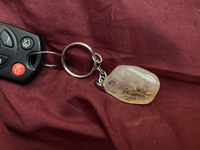(Updated 17 April 2024 to change the shortcode to a tweet to a direct link.)
(Updated 19 December 2024 due to the fact that the tweet referenced has been deleted.)
On Wednesday, Twitter user @kelmardino (account now deleted) sent out a tweet expressing concern about an image containing tips on manifesting.
I have to say that I completely understand her reaction to that image. I had a similarly negative reaction to it. I felt so strongly about what I had read that I decided to tweet a thread about it. I’ve since decided to turn that thread into this post.
I will note that the message in the image is not completely without merit. When it comes to magic, there are some nuggets of helpful advice in there. But they are buried in what is overall a heaping pile of garbage. So in the interest in addressing this state of affairs, I’d like to take each point in the image and study them for nuggets of truth while combating the awfulness they propagate.
“Always stay positive.”
Okay, I’m going to start by taking this point in a different direction than was probably intended. When planning a magical working, you should focus on what is wanted, not what is unwanted or what you want to avoid. Magic is supposed to be about positive action, like “soothe my muscles,” rather than negating action, like “stop the pain in my shoulders.” This phrasing can make a difference, especiailly when you start looking for “mundane” acts (Remember that the distinction between “mundane” and “magic” is actually nonexistence) to help achieve your goal.
Taking the statement the way it was probably intended is highly problematic. It’s okay to have doubts. It’s okay to be frustrated. Too many people who advise you to “stay positive” are basically telling you repress things that are unhealthy to repress.
Now, when you’re doing magic, it’s good to temporarily do your best to set your doubts and fears aside to work on focusing your energies toward your goals. But this should never be a permanent state of being.
“Say it like it’s already done.”
There is value to saying something is done and/or visualizing things as if there they’ve already happened. If nothing else, this helps get us excited and motivates us to keep working, especially in our “mundane” efforts.
“Do not spend time thinking about anything opposite to what you want.”
I see little value in this one outside of the magical working itself. Acknowledging that things don’t always go exactly as we like is important. And considering contingency plans or potential “course corrections” to still achieve our goals is smart. Also, if your goal does not manifest (and it happens to everyone at times), adherents to the sixth point will use this to blame you for your “failure.” We’ll talk more about that when we get there.
“Meditate on what you want.”
It’s good to spend time focusing on what you want and putting that energy into getting it. But it takes more than just meditation to accomplish something, and it’s at this point in the list where I start feeling like we lose sight of that. Accomplishing our goals also takes physical effort. If we want a new job, we have to work on writing our resume and going to interviews as well as lighting a green candle and visualizing the perfect job.
“See it, smell it, feel it, hear it.”
In a magical working, it’s good practice to involve as many senses as possible. Especially in visualization. It’s a way to get our whole body involved and committed to the effort of accomplishing our goals. However, I again note that a good visualization alone is not going to make it happen. And I feel like this is another set up to explain away the “failed spells” as somehow the individual’s fault. “You just didn’t make it real enough in your mind!”
“If it’s real in your brain, it will be real in the physical.”
This statement should be shot directly into the sun without fanfare. There is nothing redeemable about it. It is problematic in so many ways. For starters, it’s false. There are limits to what you can accomplish with magic. Some things are just too big. Some things would involve overcoming many other forces and factors in this world.
Part of learning witchcraft is learning what you really can do and how to best go from there. Sometimes, a problem has to be broken down. Sometimes, you have to figure out how to get to point X before you can move on to point Y. You can’t get to point Y in a single jump.
And again, this whole list sounds like you’re just going to meditate imagine something into existence. That’s not how this works, either. It takes effort. It takes time.
One of the things I appreciated about the Builder’s of the Adytum teaching program (which I never completed) is that they stressed that a person’s goals had to be (1) attainable and (2) often broken down into a series of goals. It’s a teaching that protected against a lot of the sloppy thinking that seems to come from the “manifestation” crow.
It’s also important to remember that some goals just aren’t obtainable for various reasons. So don’t blame yourself if something you want doesn’t come to pass.
And that’s the ultimate problem with that last statement. According to it, if you don’t get what you wanted, it’s because you did something wrong. You didn’t believe enough. You didn’t make it real enough in your mind. That’s victim blaming. Fuck that noise.

